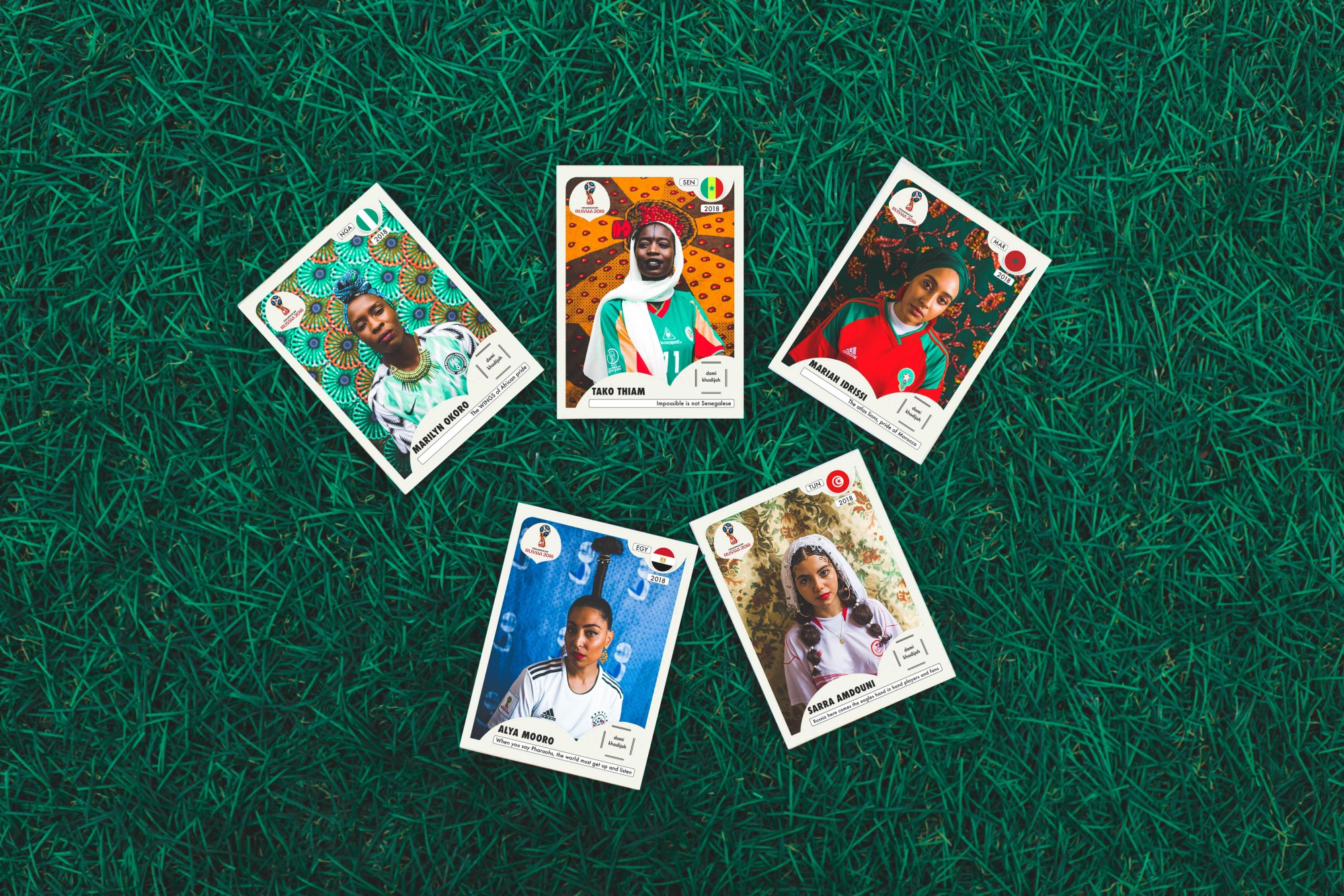So football is coming home. It’s plastered across front pages next to ads for a free cardboard Gareth Southgate waistcoat, fuelling an entire subsection of memes, and erupting from your neighbours surround sound at 4am this morning to your inexplicable joy. But what if you have two homes?
British born descendants of ethnic minority immigrants represent over a third (almost half) of the country’s ethnic population. On the England team itself, twelve players are of non-white or mixed-race heritage, Harry Kane is eligible to play for Ireland through his Dad, and Eric Dier grew up in Portugal, so could have played for them too.
“Every day, young ethnic minority women in the UK navigate their dual cultural identity — trying to balance their cultural heritage with being a person raised in the UK today,” Dami Khadijah tells us. As a creative director, visual storyteller and dual citizen, she wanted to shine a light on these women through the lens of the World Cup. So she shot five British women with African heritage in a mix of traditional clothing and football gear, before turning them into the famous Panini stickers. “This is a moment I wanted to intentionally exploit. Celebrating diasporas getting acquainted and connected back to their roots was key.”
Like the women she’s photographed, the project’s multilayered. Firstly, she wanted to celebrate the diversity that makes up modern England. “Great Britain is a huge melting pot of traditions and cultures from all over the globe creating one of the most diverse populations”, she says. “Being British today has been completely re-defined from what it used to be.”
“Calling two countries home can be a can be a challenge, as your identity is questioned in both, as if you don’t fully belong to either. But the benefits outweigh the negatives.”
Yet it’s also crucial to recognise the multiplicity of these cultures, to respect and celebrate what makes them unique. Which is why she chose one women to represent each of the five diverse African countries that qualified for the World Cup: Nigeria, Morocco, Tunisia, Senegal and Egypt.
Then there was the choice to remind everyone women quite like football too y’know. “When you think of sport and FIFA, you’re unlikely to think of a female”, Dami says, although she she believes it’s changing, pointing to Senegal’s Fatma Samoura, senior executive at FIFA and a hugely powerful woman in sport. “But our work is far from done, so we need more female decision-makers seated at the table making those decisions and raising the bar.”
Dami herself has dual citizenship in England and Nigeria. Born and raised in Brixton, she feels like anything’s possible here. Nigeria on the other hand, is a force in itself for her — vibrant, optimistic and brave. Calling two countries home can be a can be a challenge, as your identity is questioned in both, as if you don’t fully belong to either. But the benefits outweigh the negatives. “I love how my cultural heritage is intertwined with being British, and how they both live as one identity”, she says. “And can travel almost anywhere without a visa.”
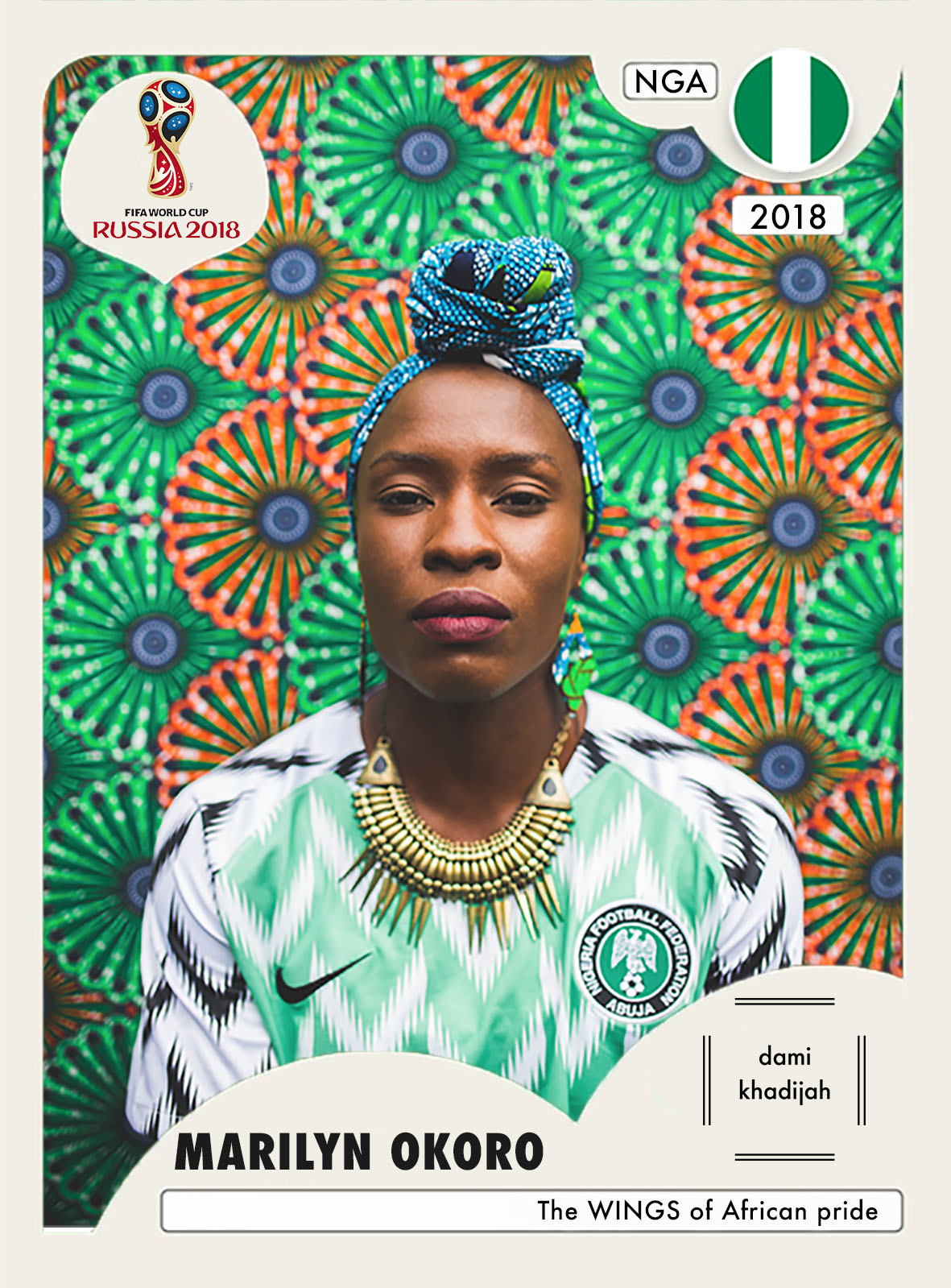
Marilyn Okoro, UK and Nigeria
“I am a double Olympian, specialising in the 800m and 400m. I have competed in two Olympic Games to date and am currently working towards making my third Olympic team in Tokyo 2020. I’m also a White Ribbon Champion, speaking up again violence against women.
I am London born and raised, but my mum did a great job of bringing Nigeria to me and instilling a lot of our home traits and values. Nigerian cuisine is second to none, and I love that you don’t have to look too far to source the ingredients right here in London.
I’m an amalgamation of two rich cultures drenched in history and tradition, and feel I truly embody traces of both. England has given me so many opportunities that have helped pave the way for my success. Equally my Nigerian values and customs have helped mould my character making sure I know who I am and can stand up for myself.
It’s easy to support two teams — I have strong ties with both nations. It’s actually great because you have twice the excitement and nerves, and when one of your teams go out you have the other keeping the hope alive. My ideal scenario would have been Nigeria and England in the final. But Since Nigeria are out, I’m rooting for England. It’s coming home!”
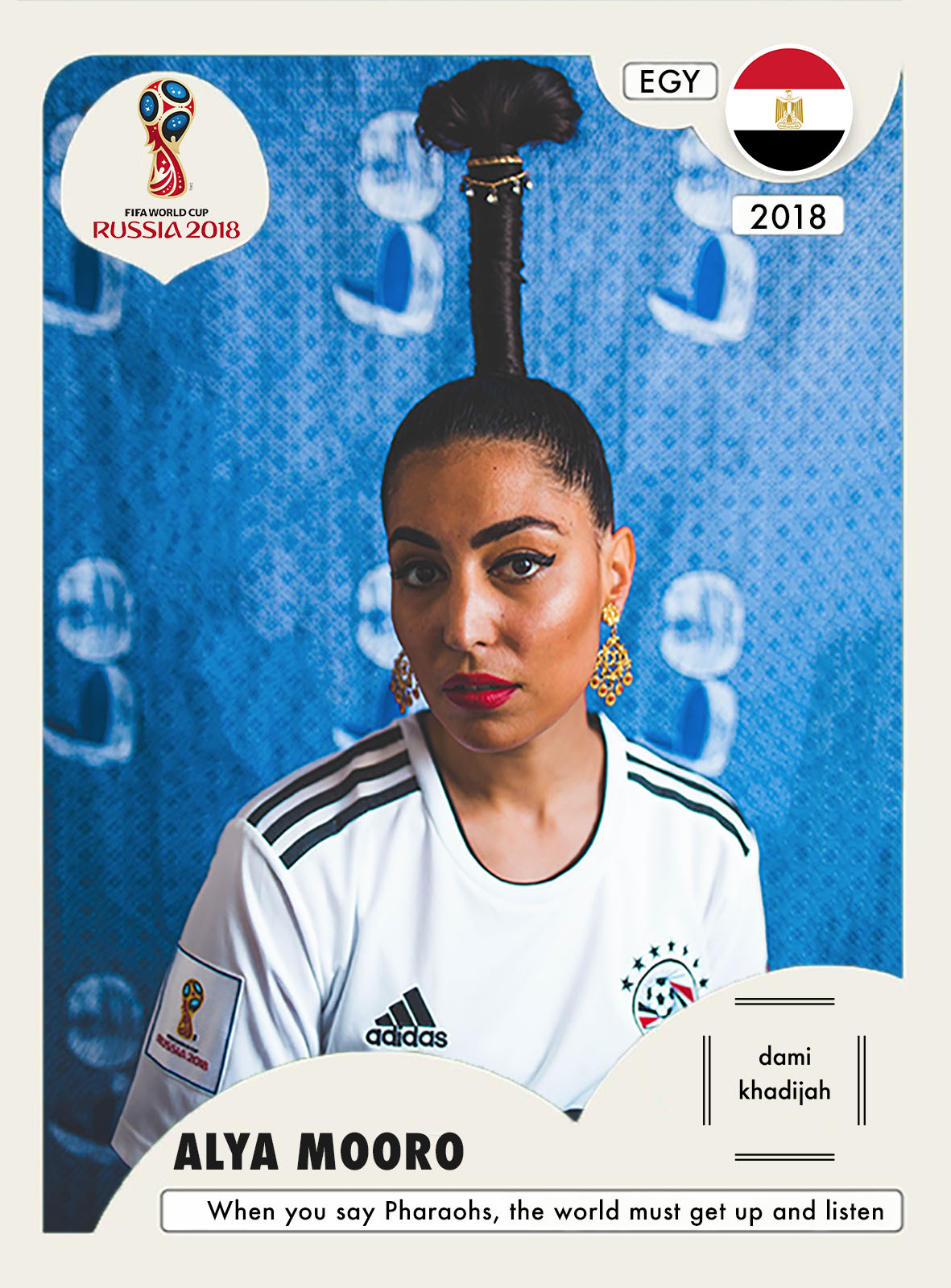
Alya Mooro, UK and Egypt
“I’m a freelance journalist, specialising in social commentary and lifestyle. I was born in Egypt but have grown up in West London since I was 8-years-old. I love the feeling of all-encompassing family I have when I’m in Egypt. It’s a really lovely, familiar, safe feeling that can’t be replicated by anything, anywhere else. What I love most about London is how diverse and accepting it is; how you can be anything and anyone you want to be here; free of judgement.
The best part about dual citizenship is being able to form my own identity by picking and choosing aspects of both cultures that resonate with me. And having two places I call home. There are many challenges though, which I’m becoming increasingly aware of as I get older. Arab culture is very strong and for Arab women, especially, there are many expectations and pressures to live up to. Reconciling the sometimes contradictory messages can be challenging. I’m actually writing a book at the moment all about this, so keep an eye out.
I think there needs to be more female commentators and more women involved in the sport at all levels. There is still so much sexism in sport and I think that needs to change. For example, of the 16,000 journalists accredited to cover the World Cup this year, only 14% are women, according to FIFA. That’s pretty damn low.”
Obviously I want England to win.”
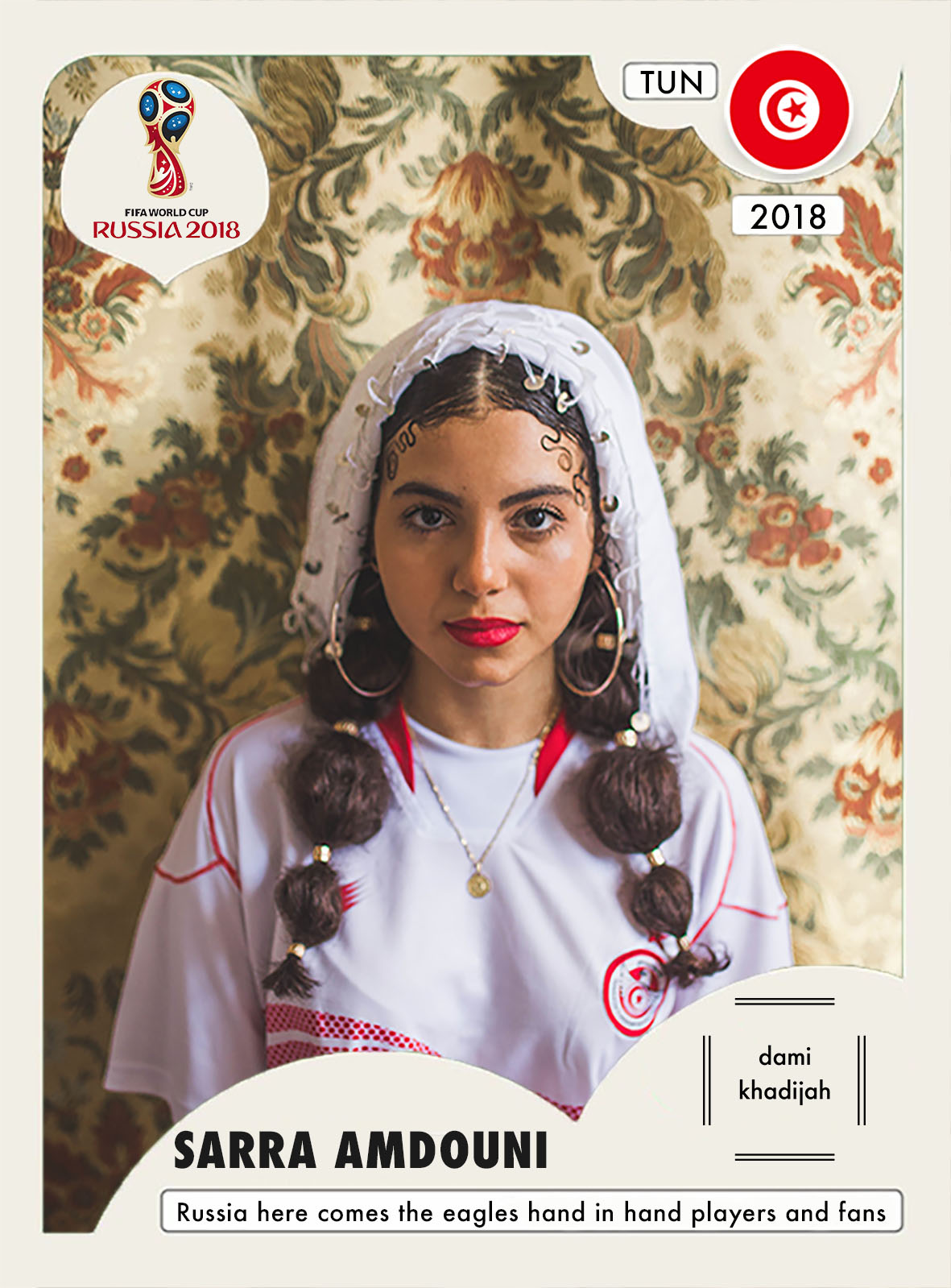
Sarra Amdouni, UK and Tunisia
“I’m a full time student at King’s College London. I grew up here, and the country itself is embedded in my character. I also love everything about Tunisia. The tiny nation held up pretty great — almost securing a draw against England, one of the current semi-finalists, in their debut match of the World Cup. Many more parts of the world now are aware of our Tunisian existence. We’ve shown the world that we should not be underestimated.
If you’re supporting two teams, just paint half your face one flag, and the other flag on the other half. Simple. Although in my case both flags are red and white so it’s much easier to support both.
The World Cup this year, in my opinion, has been the most successfully unpredictable World cups I’ve witnessed in my short life. It seems like it’s all just paving way for an English victory which we’re all hoping for just so we can celebrate as a nation and go absolutely bonkers. And possibly even get a national holiday out of it too.”
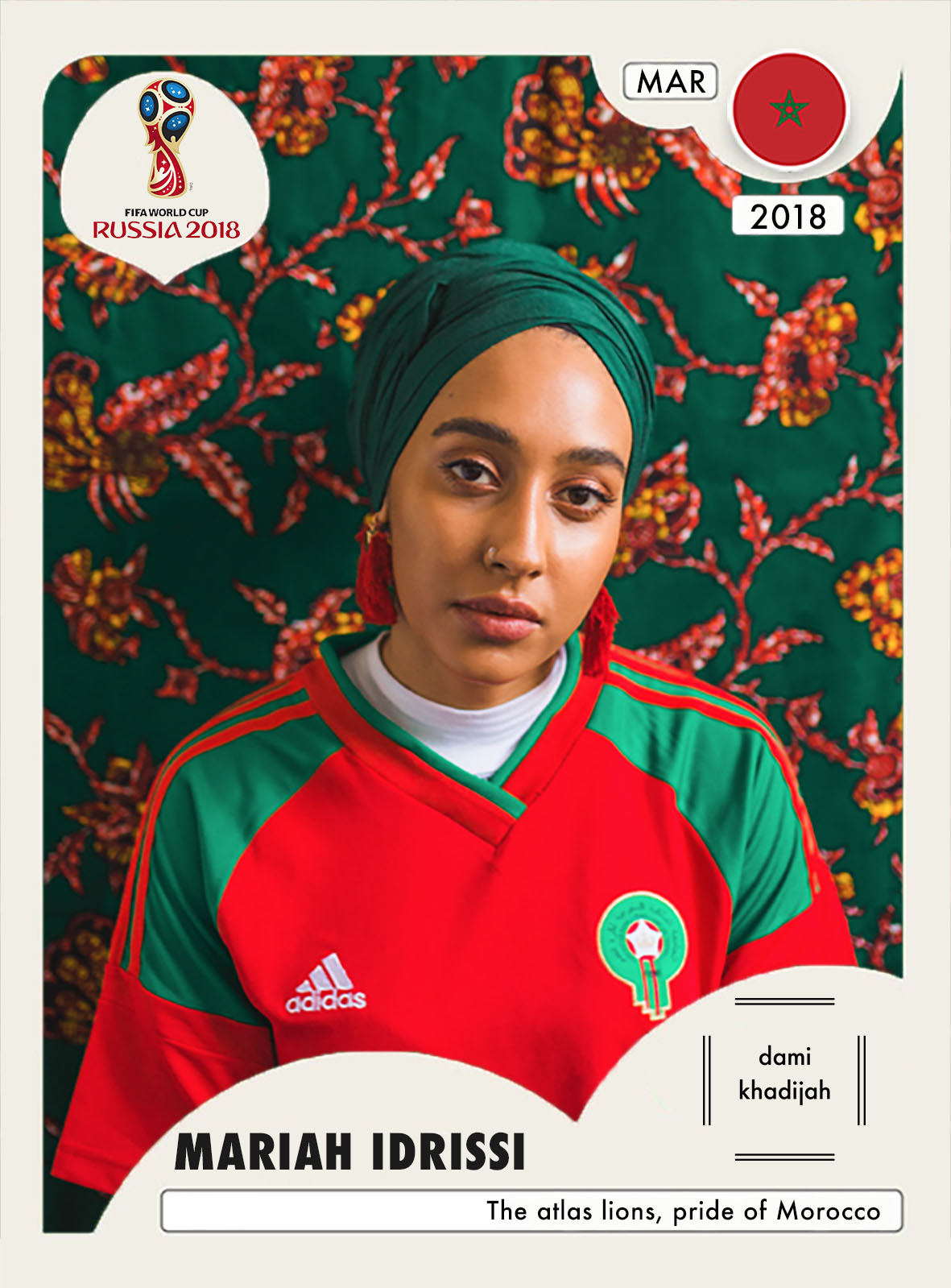
Mariah Idrissi, UK, Morocco and Pakistan
“I’m a model, public speaker and a consultant for brands and companies specialising in target marketing to ethnic and Muslim communities. My goals are to create more opportunities for minorities in the entertainment and fashion industry, and continue pushing forward positive representation in the media,
I actually only have a British passport but originally I’m mixed Moroccan and Pakistani. Being mixed makes it so easy to adapt to a variety of different cultures and backgrounds from all over the world. The challenge is that people try to figure you out racially, so they can box you or subconsciously stereotype you. Also, being in the public eye, I find your support from your community is far stronger when you come from one cultural background.
The best part of the World Cup for me is seeing the pride and love people have for where they come from originally. Growing up in London — one of the most multicultural cities in the world, it’s wonderful to see how many cultures are celebrated — and also how we all end up supporting England once our countries of origin are out the game!”
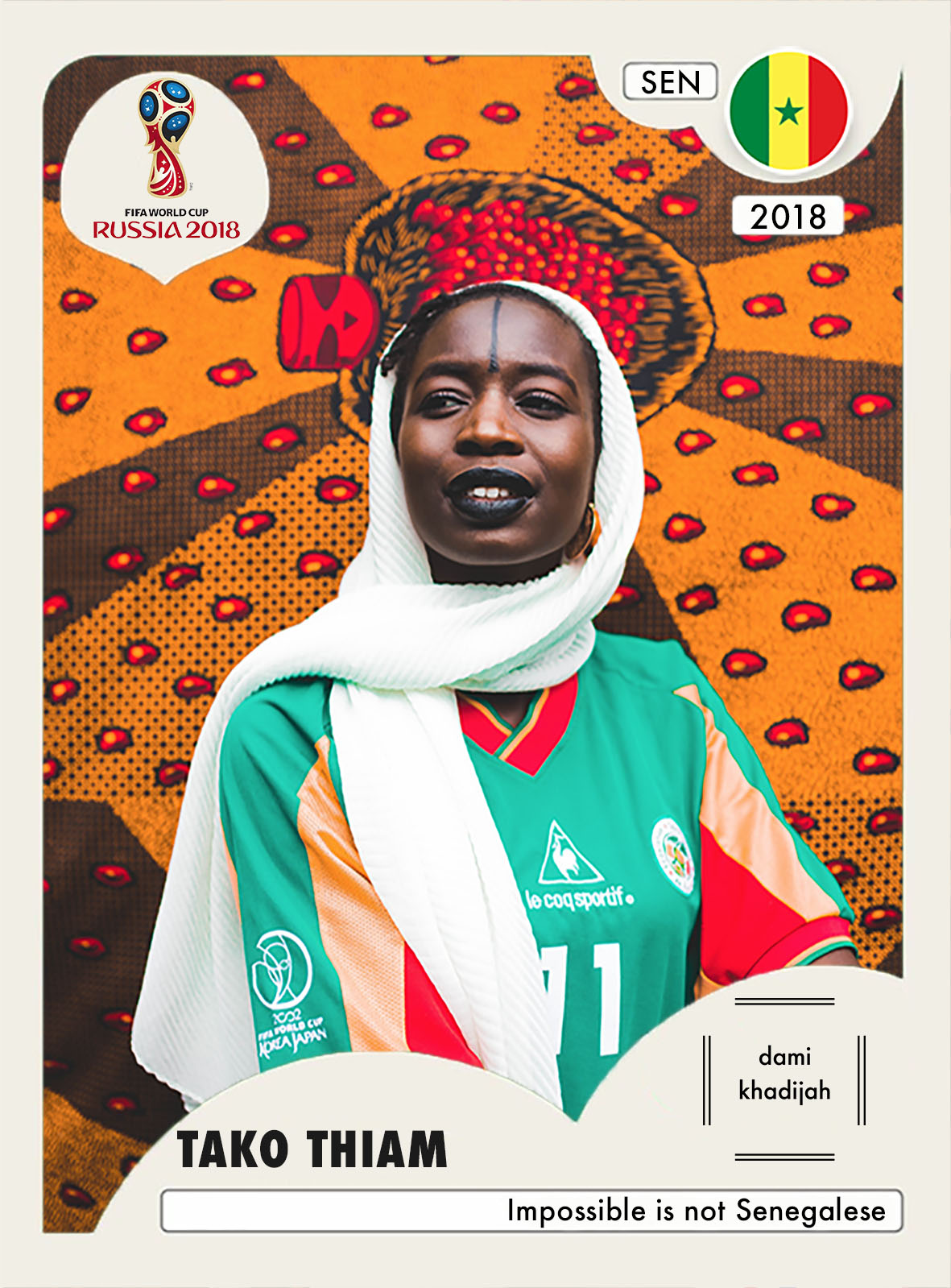
Tako Thiam, France and Senegal
“I was born in France and I grew up there. Both of my parents are Senegalese. I came to London a bit more than a year ago after being graduated of a Master Degree in HR. I’m now working for a Pharmaceutical company in this field.
For me, having dual citizenship is a real opportunity. It helps to be open minded and also to accept other people, their different cultures, customs and religions. The challenge is that sometimes people do not take in count this dual culture. They tend to forget one part of your identity. Also, we can be a bit lost ourselves, because in both of the countries you’ll have people who reminds you that you’re not totally part of them because you have this dual nationality.
You can support two teams at once — as long as they don’t play against each other. Allez les bleus.”
